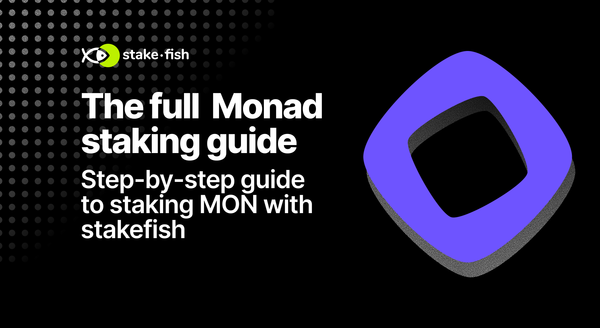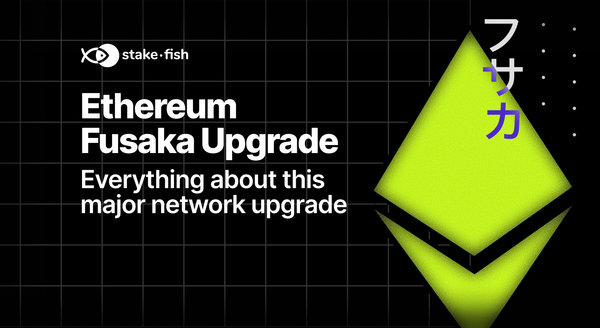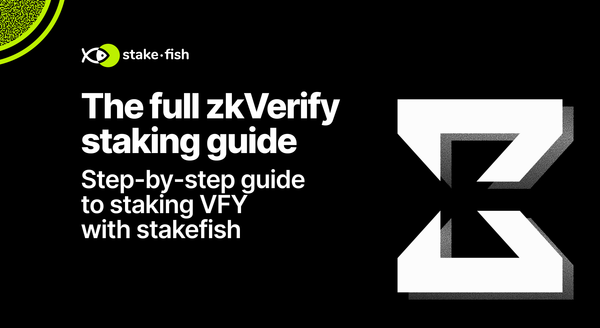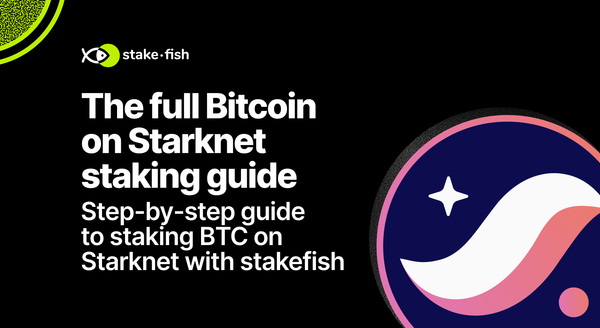How to Choose a Validator
With so many validators out there, it can be hard to choose the right one to delegate your tokens to. In this article, we’ll give you an…
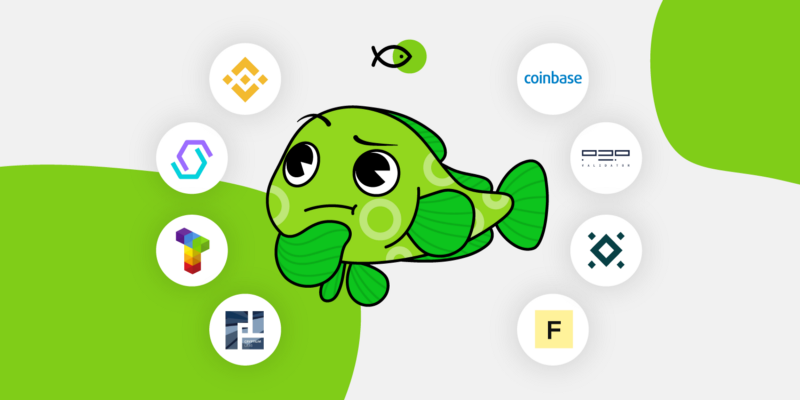
With so many validators out there, it can be hard to choose the right one to delegate your tokens to. In this article, we’ll give you an overview of the different kinds of validators and their strengths and weaknesses so that with a little research, you can make the best decision for you.
If you prefer videos, try our Head of Operations JK’s fish.talk on this topic instead.
Broadly speaking, validators fall into a handful of different categories, each with its own advantages and disadvantages. We won’t talk much about the category of fund validators here because they usually stake their own assets and are not open to individual stakers.
Take a look at the table below for a quick comparison of the different types of validators, then continue reading for a more detailed overview.
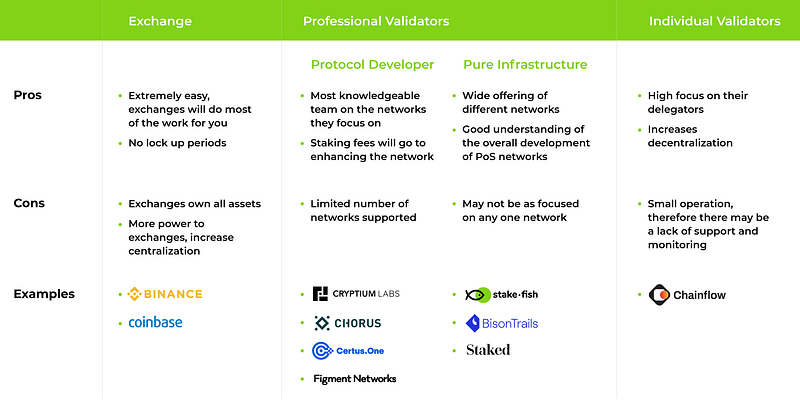
Exchanges
The major advantage of letting an exchange stake your tokens for you is convenience. This is probably the easiest path, since you don’t need to worry about key management, the staking process, or finding the necessary tools.
On the other hand, by keeping your keys on an exchange, you’re in direct opposition to the “Not your keys, not your coins” philosophy prevalent in the crypto world. If the exchange is hacked, for example, your funds may be irrevocably lost. There are also subtler implications of exchange staking that you may not have considered.
Examples: Coinbase, Binance
Professional Validators
Professional validators fall into two subcategories.
Protocol Developers
In addition to offering staking services, protocol developer validators support the development of and actively contribute code to the networks they support. One advantage of these validators is that they are usually among the most knowledgeable about the networks they support. Furthermore, because they are actively involved in development, part of your staking fees will be reinvested into the network.
Depending on your needs, a potential disadvantage of protocol developer validators is the fact that they typically support a limited number of networks due to the time and resources required to be so heavily involved in individual networks.
Examples: Cryptium Labs, Chorus One, Certus One, Figment Networks
Pure Infrastructure
Pure infrastructure professional validators (like stakefish!) tend to support a wide range of Proof of Stake networks. These validators have a good understanding of the overall development of the Proof of Stake ecosystem as a whole, which means they tend to be better at comparing different networks, understanding which networks are ahead of others in terms of development, and similar kinds of analysis.
A potential disadvantage of staking with pure infrastructure professional validators is that they may be less capable of answering more focused questions about specific networks, something a protocol developer validator that focuses on just a few networks may be better suited for.
Examples: stakefish, BisonTrails, Staked
Individual Validators
Individual validators are typically made up of one to four people and tend to be intensely focused on one or a small handful of networks. Their small size and narrower focus means they can be more responsive to what their delegators want. They are also extremely valuable to the decentralization of the network.
One potential drawback of delegating to an individual validator is less robust support and monitoring when compared to professional validators due to the smaller size of the operation.
Example: Chainflow
The type of validator you decide to stake your tokens with will ultimately depend on what kind of token holder you are. You might fall squarely into one category, or you might find yourself using different kinds of validators for different networks.
Are you a short-term trader who prioritizes convenience? Go with an exchange.
Do you hold one or two Proof of Stake coins you believe in strongly? Look into protocol developer professional validators.
Are you invested in the Proof of Stake ecosystem as a whole, with holdings across many different networks? Look into pure infrastructure professional validators.
Is increasing decentralization your top priority? Try an individual validator.
Still have questions? Feel free to join us on Telegram.
Website: https://stake.fish
Telegram: https://t.me/stakefish
Twitter: https://twitter.com/stakefish
Instagram: https://www.instagram.com/stakedotfish
LinkedIn: https://b.fish/linkedin


